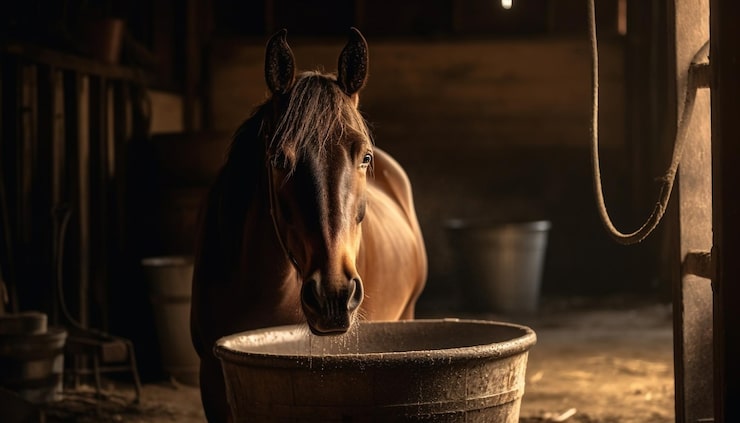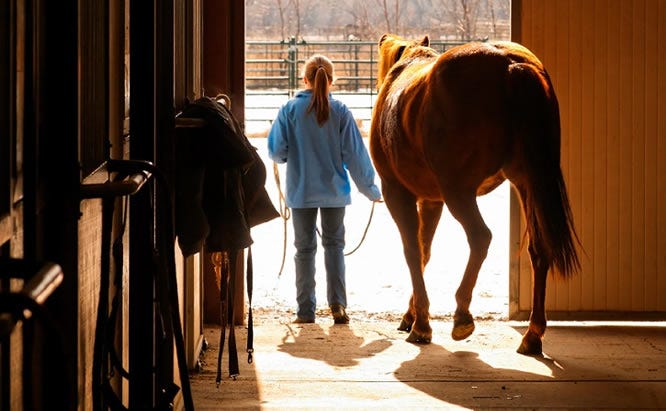For those who have been around horses for some time, a common question often arises: Can senior horses be ridden? This question is essential, not just for the well-being of the horse but also for ensuring a fulfilling experience for the rider. The short answer is yes, but with the right care and attention. Let’s dive deeper into understanding how to ride senior horses safely and comfortably.

Understanding the Aging Process in Horses
As horses age, much like humans, their physical and sometimes mental capabilities start to change. Aging in horses can affect their joints, muscles, and even their energy levels. Thus, recognizing these changes is crucial for determining whether they can continue to be ridden.
Physical Changes in Senior Horses
Senior horses may experience stiffness in their joints and a decrease in muscle mass. These changes can impact their ability to carry weight and maintain stamina. Regular veterinary check-ups can help monitor these changes.
Mental Health and Alertness
While physical health is often the focus, mental alertness is equally important. Older horses might experience changes in their hearing, vision, and overall responsiveness. Ensuring they are mentally fit is part of deciding if they can be ridden.
Benefits of Riding Senior Horses
There are many benefits to riding an older horse. It can help maintain their muscle tone, improve circulation, and keep them mentally stimulated. Additionally, many senior horses possess a wealth of experience and can offer a calm and steady ride.
Maintaining Muscle Tone
Regular, light riding can help maintain a senior horse’s muscle tone. This is beneficial as it can reduce the risk of muscle atrophy and joint stiffness.
Promoting Mental Stimulation
Engaging with your horse helps keep their mind active, reducing the likelihood of them becoming bored or depressed. It also strengthens the bond between horse and rider.
Considerations Before Riding a Senior Horse
Before deciding to ride a senior horse, there are several factors to consider. These include their current health status, any existing medical conditions, and their energy levels.
Veterinary Assessment
It is advisable to have a veterinarian evaluate your horse’s health. This can help identify any underlying conditions that may not be immediately apparent but could affect their ability to be ridden.
Customized Exercise Regimen
Senior horses benefit from a customized exercise regimen tailored to their needs. This should be designed to maintain their health without overexerting them.
How to Safely Ride a Senior Horse
Riding a senior horse requires a gentle and thoughtful approach. Here are some tips to ensure a safe and enjoyable experience for both horse and rider.
Warm-Up and Cool-Down
Always start with a proper warm-up to prepare the horse’s muscles and joints. Similarly, ending with a cool-down helps prevent stiffness.
Monitoring for Signs of Discomfort
Be vigilant for any signs of discomfort or fatigue. If a senior horse shows signs of distress, it’s crucial to stop and assess the situation.
Proper Diet and Nutrition
Nutrition plays a pivotal role in the health of senior horses. A balanced diet can contribute significantly to their overall well-being and ability to be ridden.
Supplements for Joint Health
Consider supplements that support joint health, such as glucosamine and chondroitin. These can help alleviate joint stiffness and pain.
Hydration and Feeding
Ensure that the horse is well-hydrated and receives a diet rich in essential nutrients. This is critical for maintaining energy levels and overall health.
Equipment Considerations
The right equipment can make a significant difference in a senior horse’s comfort when being ridden.
Choosing the Right Saddle
A saddle that fits well is crucial. It should not press on any sensitive areas and should distribute weight evenly.
Using Soft Padding
Soft padding can prevent chafing and pressure sores, enhancing the horse’s comfort during rides.
When to Take a Break from Riding
Recognizing when a senior horse needs a break is as important as knowing when they can be ridden. Some signs might indicate it’s time for a rest.
Signs of Fatigue
Signs such as heavy breathing, stumbling, or decreased responsiveness may indicate fatigue. It’s important to prioritize the horse’s well-being by allowing ample rest.
Consulting with a Veterinarian
Regular consultations with a veterinarian can help determine the appropriate balance between exercise and rest for your senior horse.
Conclusion
In conclusion, the question can senior horses be ridden is indeed a multifaceted one. It depends on various factors including the horse’s physical condition, mental alertness, and overall health. However, with careful consideration, proper care, and regular veterinary check-ups, riding a senior horse can be a rewarding experience for both the horse and rider.

FAQs
How often should I ride my senior horse?
The frequency of rides depends on the horse’s health and energy levels. Consult a veterinarian for a tailored exercise plan.
What signs should I look for to stop riding?
Look for signs of fatigue, discomfort, or changes in behavior which could indicate the need for rest.
Are there specific health conditions that prevent riding?
Conditions like severe arthritis or respiratory issues may limit a senior horse’s ability to be ridden. A vet’s assessment is crucial in these cases.
For more detailed guidance on caring for senior horses, visit University of Minnesota’s guide on caring for senior horses.
This article contains affiliate links. We may earn a commission at no extra cost to you.
